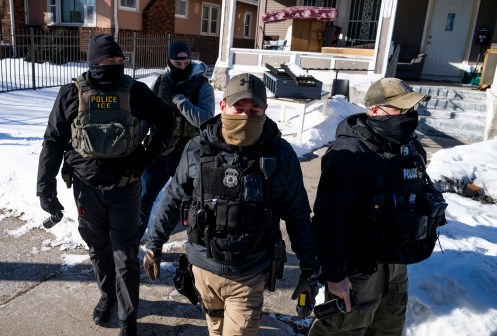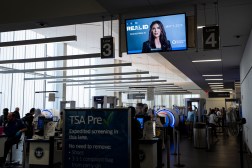John Pistole, the longest-serving administrator of the Transportation Security Administration, announced Thursday he will retire at the end of the year and plans to accept a new position in academia.
Pistole’s 31-year federal career included more than four years as the head of TSA and 26 years at the FBI, where he rose through the ranks after the terrorist attacks of Sept. 11, 2001, to become the FBI’s deputy director in 2004.
“It has been an honor and a privilege to have served as TSA Administrator. No words can convey my deep gratitude for the hard work and dedication of the thousands of men and women committed to protecting the American public,” Pistole said in a statement. “I could not be more proud of all that our employees have accomplished together, particularly what they have done to help enhance the effectiveness and efficiency of transportation security while improving the passenger screening experience.”
Department of Homeland Security Secretary Jeh Johnson credited Pistole with spearheading critical security initiatives, including the Trusted Traveler program and TSA Pre-Check, which have helped bolster aviation security during the past four years.
“John Pistole has been integral in leading TSA’s transformation to a risk-based, intelligence-driven counterterrorism agency dedicated to protecting our transportation systems,” Johnson said in a statement. “Because of his efforts over the past four and a half years, our country’s transportation systems are more safe and secure. I am grateful for John’s contributions to DHS, TSA and our country.”
TSA underwent a major transformation during Pistole’s leadership, shifting from a lumbering agency seen as incapable of responding to new threats with speed and agility to an intelligence-driven organization that has turned its attention to the promise of big data helping focus its limited resources on the passengers that pose the biggest threat to airline security. The public face of TSA’s big data approach to risk management is the agency’s Pre-Check program, which provides expedited screening to travelers who undergo a TSA background check.
Of the more than 2 million people who undergo TSA screening every day, more than 400,000 have signed up for Pre-Check, and 120 airports now offer Pre-Check expedited boarding lanes. “Our sense is we can buy down the risk by expediting the screening” of people who do not pose a significant security threat, Pistole said in July when TSA announced a new policy on electronic device screening after it received what it deemed to be credible intelligence on terrorist use of non-metallic explosives. Big data can be the agency’s friend when used properly, he said, referring to the need to ensure privacy protections.
Under Pistole’s leadership, the TSA began discussions earlier this year with private sector consortiums on using third-party companies to manage the enrollment of travelers into the Pre-Check program. The effort would leverage commercially available data and allow the agency to significantly expand the number of frequent fliers in the program while maintaining TSA’s overall authority to approve who gets to participate.







